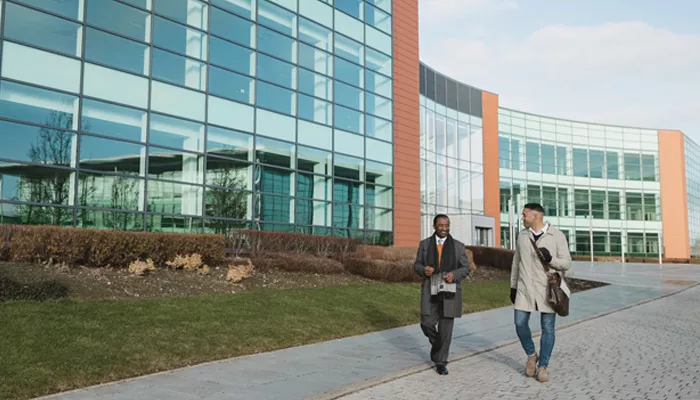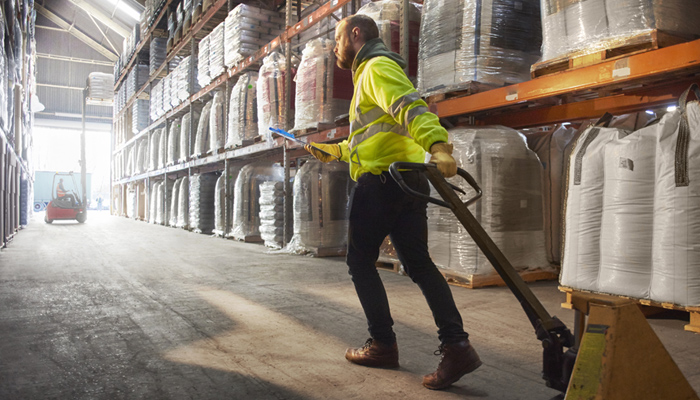What to do After an Accident at Work
What do you need to know in the event of an accident at work?
Correctly reporting and documenting accidents in the work place is an important part of your health and safety procedure. In this article you can find a step by step guide on what to do and how it may affect your employers liability insurance.
In the event of an accident happening at your workplace, it is extremely important to determine the exact cause(s) of the accident. The recording of the accident is a legal requirement and it is essential that even minor accidents and injuries are reported and investigated properly, as soon as possible – this makes sure that the right measures are in place to prevent a similar accident happening again.
The benefits of investigating are that you identify the immediate, underlying and root causes, which in turn will allow you to implement measures that will prevent a recurrence. An investigation will also mean you gain a better understanding of the risks associated with work activities, therefore reducing the number of accidents, which in turn result in a financial saving for your business.
Reporting and documenting
In particular, you must record and report:
-
Any situation where allegations are made (verbal or written) concerning the standard of care received by a person in your care, including allegations of abuse or neglect.
-
Any situation where an inquest is to be held following the death of a person in your care, whether at the premises or following an admission to hospital.
Five stages of an accident investigation
-
Reporting – It is important that an accident is recorded and reported as quickly as possible. Usually an accident only needs to be reported internally, but there are certain types of accidents that need to be reported, within 24 hours, by law, to the HSE or your local authority. These are listed on www.hse.gov.uk/riddor.
-
Gathering information – It is essential that you collect statements and evidence from the parties involved in an accident. Details of whom or how they were involved can lead to a better understanding of what happened. Photographs are a good way of recording the scene of an accident.
-
Analysing information – This is the stage in which you can start to piece together the evidence & information that you have and begin to understand what happened and more importantly, the underlying reasons for the accident. You will need to establish the cause(s) of the accident, which can be classed as immediate, underlying and root causes.
-
Identifying risk control measures – The fact that an event has occurred suggests the existing risk control measures were inadequate. After the accident has been examined and the causes have been identified, control measures can be put into place. Using a risk management tool ensures that risks can be identified, monitored and managed whilst improvements to the service can be made through learning from events, incidents, errors and near misses.
-
Action planning & implementing – Finally, a plan needs to be put in place for implementing the control measures that have been identified. This should include checking and reviewing risk assessments, reviewing staff training and providing feedback to all parties involved.
Insurance for accidents at work
In the event of an accident within your business, if you do not report it immediately to your insurer, it will delay the ability to investigate the accident and could result in a refusal to grant indemnity. Late notification means your insurer will have to operate within an extremely tight timescale and failure to meet them can result in financial penalties and may prevent a proper defence.
If you report an accident as soon as it happens, your insurer can appoint a claims investigator who will be sent out to visit the scene of the accident and gather information that can be put together in case a claim is made against your business insurance.
About the author
 Alison Wild BCom (Hons), FMAAT, MATT, Taxation Technician is a highly respected industry professional who has been working with and advising SMEs in areas including tax, pensions, insurance and marketing for over 25 years. She is a member of the Association of Accounting Technicians (AAT) and Association of Tax Technicians (ATT) and also has over 20 years' experience as a residential landlord.
Alison Wild BCom (Hons), FMAAT, MATT, Taxation Technician is a highly respected industry professional who has been working with and advising SMEs in areas including tax, pensions, insurance and marketing for over 25 years. She is a member of the Association of Accounting Technicians (AAT) and Association of Tax Technicians (ATT) and also has over 20 years' experience as a residential landlord.
Date: August 15, 2015
Category: Trade











